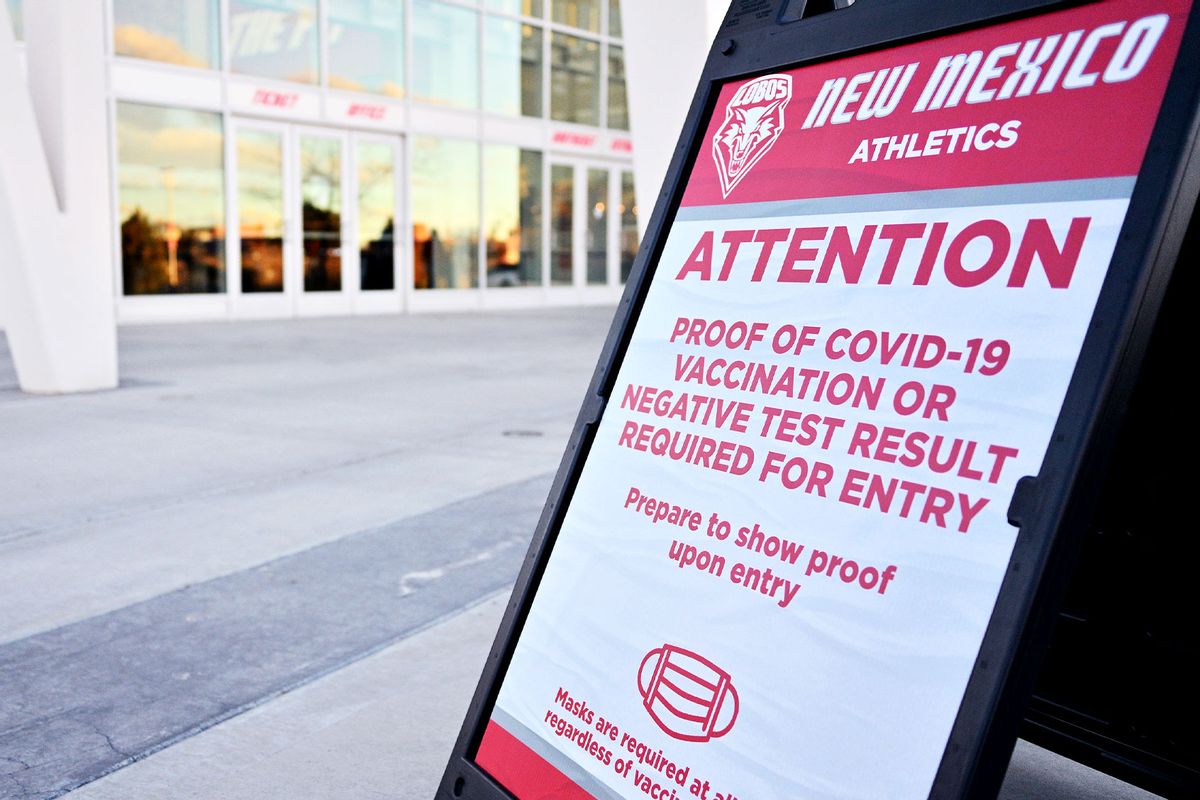While vaccinations provide significant protection against COVID-19 infection and serious illness, they offer an added bonus of altruism at no cost. Vaccinated individuals are simply less contagious, even when they contract COVID-19.
But that benefit is not a two-way street.
Epidemiologists at the University of Toronto modeled variability of infection rates among two groups: those who self-segregate by vaccination status, and those who intermingle. The findings do not bode well for those still pushing vaccination or lack thereof as a matter of personal liberty. Not only do we know the unvaccinated are at the highest risk of infection and death from COVID-19, but Dr. David Fisman and his colleagues showed a disproportionate number of infections stem from unvaccinated individuals.
In other words, merely being around the unvaccinated increases risk that the vaccinated will contract a breakthrough infection — far more than if one were in a vaccinated-only space.
"In the model, many more infections in vaccinated individuals derive from contacts with unvaccinated individuals than one would expect based on the proportion of contacts that are with unvaccinated folks," Fisman wrote to Salon.
Published in Canadian Medical Association Journal, their results, assuming an 80% vaccination rate, found that the smaller, unvaccinated subpopulation had a similar number of infections as the dominant, vaccinated group when the population distribution was randomized. Then they adjusted the parameters to see what would happen when the two groups were increasingly separated. The contrast was stark.
Adjusted for population size, peak incidence among the unvaccinated skyrocketed from four times to 30 times higher in a strongly insular group. For the vaccinated, exposure to the unvaccinated increased risk of infection.
RELATED: Your blood type may affect how sick you get from COVID-19
In no way does this suggest vaccines are not effective — quite the contrary. The risk of infection remained relatively low for vaccinated individuals across all scenarios of intermingling.
"The decision to remain unvaccinated confers risk both to the individual, and to the broader community, under circumstances where vaccination provides even modest protection against infection," Fisman said.
Still, he noted that the model was simple. It did not account for the severity of infections. Rather, the study highlights the impact personal choices of unvaccinated individuals threaten the health and safety of others from a highly infectious disease that has killed millions of people and continues to do so.
Want more health and science stories in your inbox? Subscribe to Salon's weekly newsletter The Vulgar Scientist.
"In that context, I think it becomes reasonable to use vaccine mandates and passports as a measure that prevents the benefit of vaccines (in those who choose to be vaccinated) from being eroded by the choices of others," Fisman continued. "Striking a balance between the rights of individuals and rights of communities is pretty much bread-and-butter public health, so it's unclear to me why this would be contentious. There is no fundamental right to spread tuberculosis, typhoid or syphilis, for example."
Confusion over what constitutes personal liberty abounds as right-wing pundits continue to push the notion that vaccinations infringe upon civil rights. Tucker Carlson, Marjorie Taylor Greene, and other conservative figures have repeatedly likened vaccination requirements to racial discrimination.
The American Civil Liberties Union disagrees. "Far from compromising civil liberties, vaccine mandates actually further them," read a statement on their website. "They protect the most vulnerable among us, including people with disabilities and fragile immune systems, children too young to be vaccinated, and communities of color hit hard by the disease."
Not only do vaccines protect those who have no choice in exposure via employment such as healthcare workers and teachers or children in schools, who additionally lack medical autonomy, but they also benefit society as a whole. The ACLU explained that under these circumstances vaccination does not constitute a matter of civil freedom.
"Vaccines are a justifiable intrusion on autonomy and bodily integrity," they added. "That may sound ominous, because we all have the fundamental right to bodily integrity and to make our own health care decisions. But these rights are not absolute. They do not include the right to inflict harm on others."
Read more on vaccination and risk:



Shares